Archive
16 May 2024
Cees Dekker wins Sackler Prize
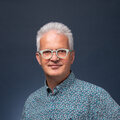
Prof. dr. Cees Dekker wins the Sackler International Prize in Biophysics for his seminal contributions to single-molecule biophysics, including the application of nanotechnology to biological systems, developing single-molecule techniques leading to breakthroughs in DNA and protein sequencing with nanopores, novel insights in DNA-protein interactions and chromosome organisation, and experimental demonstration of DNA loop extrusion predicted by Prof. Mirny, as well as the development of synthetic cells.
15 May 2024
From flocs to granules: new opportunities for wastewater treatment
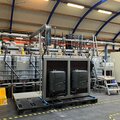
On 16 May, Viktor Haaksman will defend his doctoral thesis at the Faculty of Applied Sciences at TU Delft. Together with a large public-private consortium, he developed granular sludge technology that allows existing wastewater treatment plants to increase their capacity without large-scale new construction.
08 May 2024
Disorder improves battery life

What determines the cycle life of batteries? And, more importantly, how can we extend it? An international research team led by TU Delft has discovered that local disorder in the oxide cathode material increases the number of times Li-ion batteries can be charged and discharged. Their results have been published in Nature.
08 May 2024
NWO funds investigation on commercialization of ultra-sensitive proteomics technologies
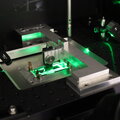
To stimulate real-world application of protein research at the TU Delft Bionanoscience department, the Dutch Scientific Organisation (NWO) has appointed researcher Carlos de Lannoy as fellow of the Faculty of Impact.
02 May 2024
NWO funding to develop central building blocks for quantum computers

The future of information technologies lies in quantum information technologies, which promise a big leap forward in computation and communication. The Dutch Research Council (NWO) has awarded an €850,000 Open Technology Grant to a consortium that will develop central building blocks for future quantum computers. The consortium, led by UvA-physicist Peter Schall, will consist of the University of Amsterdam, TU Delft and industry partners Toyota and Quix.
01 May 2024
Roman Barth announced as 2024 Schmidt Science Fellow
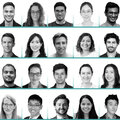
Roman Barth is named member of the 2024 Schmidt Science Fellows, along with thirty-one other early-career researchers. He will use powerful deep learning-based algorithms to design new candidates for a promising, but difficult to identify, class of drugs.
25 April 2024
Grossi emphasises the need of engineers during a visit at TU Delft
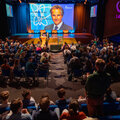
At Wednesday 24th of April TU Delft hosted a meeting for Director General Rafael Grossi of the International Atomic Energy Agency (IAEA), students and others interested in the nuclear sector.
25 April 2024
Light stands still in a deformed crystal
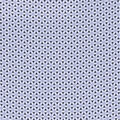
AMOLF researchers, in collaboration with Kobus Kuipers from Delft University of Technology, succeeded to bring light waves to a halt by deforming the two-dimensional photonic crystal that contains them. The researchers showed that even a subtle deformation can have a substantial effect on photons in the crystal. This resembles the effect that a magnetic field has on electrons.
19 April 2024
Problem in microscopy solved after decades
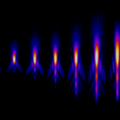
Examining tissues, cells, and proteins under a microscope helps us prevent and combat diseases. To study this, we need to precisely determine the dimensions of the biological structure. However, a biological sample may appear flatter under the light microscope than it actually is. Researchers at Delft University of Technology have now demonstrated for the first time that this distortion is not constant, contrary to what many scientists have assumed for decades. The breakthrough, published in Optica, confirms a prediction by Nobel laureate Stefan Hell from the 90s. With an online calculation tool and software, every researcher can now determine the correct depth of a biological sample.
20 March 2024
Jack Pronk receives the 2024 Novozymes Prize
